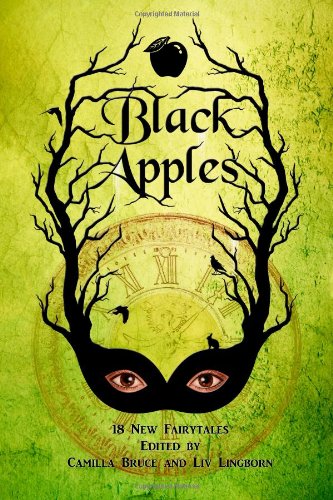Blog Archives
Time for an Aside
Been digging through Pat’s old school papers again. Came upon this little lost gem and thought you might like.
Yours always,
Red
“Time for an aside/A brief interruption/How much racism is there today?/Where I come from.”
(August 2003)
It’s not that my parents were overtly racist. I don’t think I ever heard my mother say anything bad about anyone. I can remember my father making the occasional off-hand comment, telling a joke with that word we were forbidden to utter, or screaming that same word while cheering on a player of his favorite football team. I do remember one occasion when I was confronted with racism first hand. It wasn’t anything big or monumental, but it’s still there in my cache of memories. There’s another one in that hidden stockpile that comes from a story my mother told us as children.
We were driving through the rural South one summer vacation heading for Florida. I remember that we were way out in the country. There were lots of trees with moss hanging from the branches. It was spooky the way the moss grew like that, like those trees were haunted or something. We’d pass a large house, a plantation my father called them, and then we wouldn’t see another house for a couple of miles. In between these grandiose buildings, we’d see groups of shabby looking constructions. They were clustered close together like they were looking for safety in numbers. I thought they were for animals. They didn’t look any larger to me than the shed we had behind our own house. I didn’t think anyone could live there, and I was surprised when I saw that I was wrong. As we came upon the next bunch of these tin-roofed shacks, I saw a pair of young, black children playing naked out in the dirt the places had for yards. I can remember my father?/mother? Saying, “Oh look at the cute, little pickanannies.” He/she didn’t seem to think anything of it. It was said matter-of-factly. No hatred attached. Yet, it made me feel strange. I remember asking what the word meant, but I don’t recall exactly what was said. Something about old slave homes and mixed blood.
The memory of those playing children was already hundreds of miles behind me when the magical castle of Disney World came into view through the station wagon’s windshield, and completely overrode any lingering image of naked, brown skin in my mind. It wasn’t until many years later, when I read Flannery O’Connor’s “A Good Man is Hard to Find,” that that memory resurfaced for the first time.
During the early Sixties, my father was given the Southeastern sales territory for Wisconsin Motors. Married four months earlier, my father relocated to Atlanta, Georgia with his new bride, a nineteen-year-old, Lutheran girl from Wausau, Wisconsin. Pregnant with my oldest sister, my mother had never traveled beyond the state’s borders. Left alone for days at a time while my father was on the road, she was left to her own devices. Unfamiliar with the ways of the wider world, especially the “New South,” she was the ultimate fish-out-of-water. Her only experiences with “people of the colored races” were summer revival meetings she’d attended as a child. At these tented, church affairs, she’d participated in the colorful and exuberant activities, coming away awed at the sense of religious community.
There was no washer or dryer in the furnished, studio apartment they rented so my mother had to take the bus or walk to the nearest Laundromat to get their clothes cleaned. My mother had no one to talk to during the hot days and long night my father wasn’t there. She had just graduated from high school a year earlier, and had gotten her first job as a secretary in Milwaukee. That had been her first big move. She’d then met my father, a thirty-year-old sales representative, at an after-work function. Drunk upon meeting my mother, my father’s first words to her were, “You’re going to marry me some day.” My mother wasn’t impressed at the time. But not long after that, he asked her out on a date, and she surprised herself by accepting. She said he wasn’t as bad when he was sober, and he was good looking, the talk of the secretarial pool. Soon after that they were married. And now Georgia.
It had been a whirlwind of a year, and my mother was finally coming back to reality. Alone and in a strange city, she felt lost and isolated. Had she made the biggest mistake of her life? Should she go back home? Forget this new life? Not ready to accept defeat yet, she kept herself busy by reading dime-store romances, listening to the Motorola radio my father had given her as a gift, and keeping the apartment clean. She’d been out with my father to restaurants and to the movies, but she hadn’t yet gone anywhere on her own. The Laundromat would be the first place she’d go to by herself.
The Laundromat was a busy place. The first thing she noticed was the noise of the machines, and then that of women’s voices. It was a welcoming sound to say the least. Every day she wrote letters home to her younger sister back in Wausau, but on my father’s pay, long distance phone calls had to be far and in-between. So she was starved for conversation. My father, when he was around, was a good talker and listener, but what my mother especially missed was the type of conversation that is only possible when a group of women are together. Like birds gathered on an electric wire, the women stood by their machines chatting and calling to each other in their high-pitched voices. It was music to her ears.
She was so happy to be around other women that she didn’t notice when the murmurs dimmed. She walked to an open washer and started putting in her first load of clothes, proud of herself for making it here on her own, and laughing at herself for thinking she’d made a mistake marrying my father. If she could manage this first simple task, then who knew? Maybe she could handle the rest. She asked the woman next to her if she had any extra bleach as she had forgotten to bring any. The woman seemed shocked and didn’t respond. When my mother asked again, the woman responded, “No ma’am, but I can get you some if you like.” There was a tone in the woman’s voice that my mother had never heard before. Confused, she looked around at the other women in the Laundromat searching for an answer. She then noticed two women staring at her and heard one of them mutter, “Yankee.”








You must be logged in to post a comment.